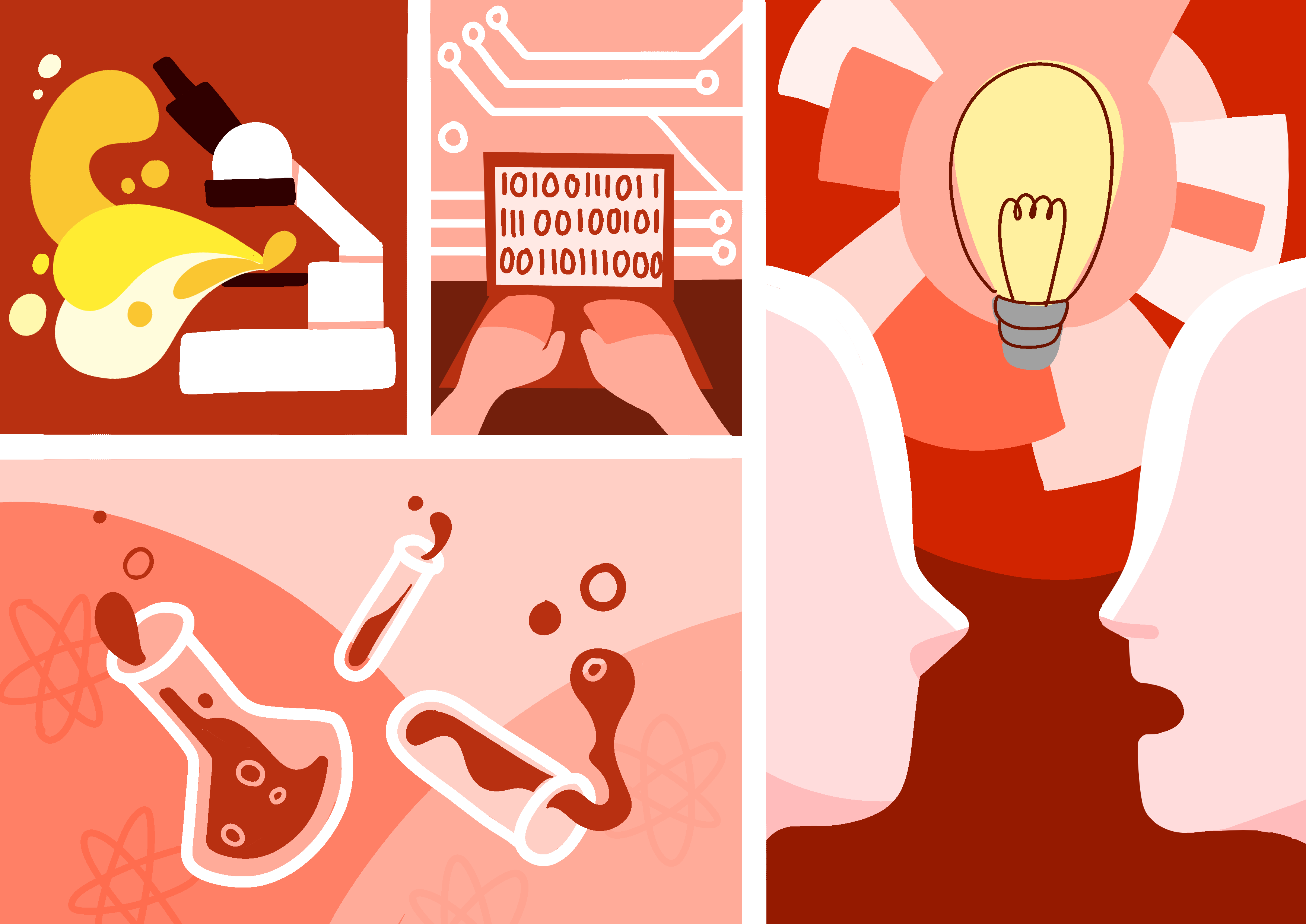The Daily’s Academics desk gathers a weekly digest collecting some of the most impactful and interesting research publications and developments at Stanford. Read all of the latest in this week’s Research Roundup.
Anyone can cook — even robots
Stanford engineers recently built a robot that can autonomously perform household tasks, such as tidying up a table, pushing in chairs and sautéeing shrimp. The robot, named Mobile ALOHA, has helped the researchers investigate artificial intelligence in physical motion.
Mobile ALOHA learns new household actions from a human researcher, who acts as a puppeteer to guide its robotic arms to accomplish certain tasks. After numerous trials, the robot uses its machine-learning algorithms to complete the task independently.
Mobile ALOHA learns actions similar to how large-language models, such as OpenAI’s ChatGPT, pick up on language use.
“Helping robots is a very promising future of the field where we — as AI researchers and roboticists — can make a positive impact in society,” Zipeng Fu, a computer science Ph.D. student and project co-lead, told Stanford Engineering.
The engineers look to expand the range of actions that the robot can perform and to make it more compact and beginner-friendly to operate.
Study reveals new insights into Parkinson’s speech impairment
A May 20 study published by Stanford Medicine explores the role of speech impairment in Parkinson’s treatments. While Parkinson’s disease is thought of as largely a motor disorder, the paper’s authors said treatments should not overlook the effect of Parkinson’s on speech.
Through brain imaging techniques, the researchers discovered neural connections that could explain the reasons behind worsening speech and related symptoms in patients with Parkinson’s. Some treatments designed to improve motor dexterity can worsen speech impairment while others can improve it, the researchers found.
In the study, the authors gave participants written and oral cognitive tests, along with motor function tests, to compare the results while on and off of a certain Parkinson’s drug, levodopa. The researchers initially found the medication improved motor function and had no effect on cognition. Upon further investigation, they discovered that medicated participants showed an increase in accuracy on the oral test with no change in the written performance.
The authors described this improvement as the result of greater “functional connectivity,” the coordination of activity across regions of the brain involved in speech.
“This insight opens new avenues for therapeutic interventions tailored specifically to improve speech without deteriorating other cognitive abilities,” said senior author Vinod Menon, a Stanford Medicine professor of psychiatry and behavioral sciences.
Stanford launches Asian American and aerospace autonomy research centers
On May 22 and 23, Stanford opened its Asian American Research Center (AARCS) and Center for AeroSpace Autonomy Research (CAESAR).
AARCS, which is under the School of Humanities and Sciences, seeks to increase interdisciplinary scholarship and research on Asian American studies. Additionally, it looks to connect students with community outreach and policymaking beyond Stanford. History professor Gordon H. Chang M.A. ’72 Ph.D. ’87 will serve as the inaugural director.
CAESAR will focus its research efforts on expanding the boundaries of spacecraft autonomy. A key issue is the development of machine learning algorithms that will allow spacecraft to operate independently and gather data for crucial research into outer space. For nine months, the organization has been working in stealth, collaborating with organizations such as NASA, the National Science Foundation and Blue Origin. Simone D’Amico, associate professor of aeronautics and astronautics, will be the CAESAR founding director.
